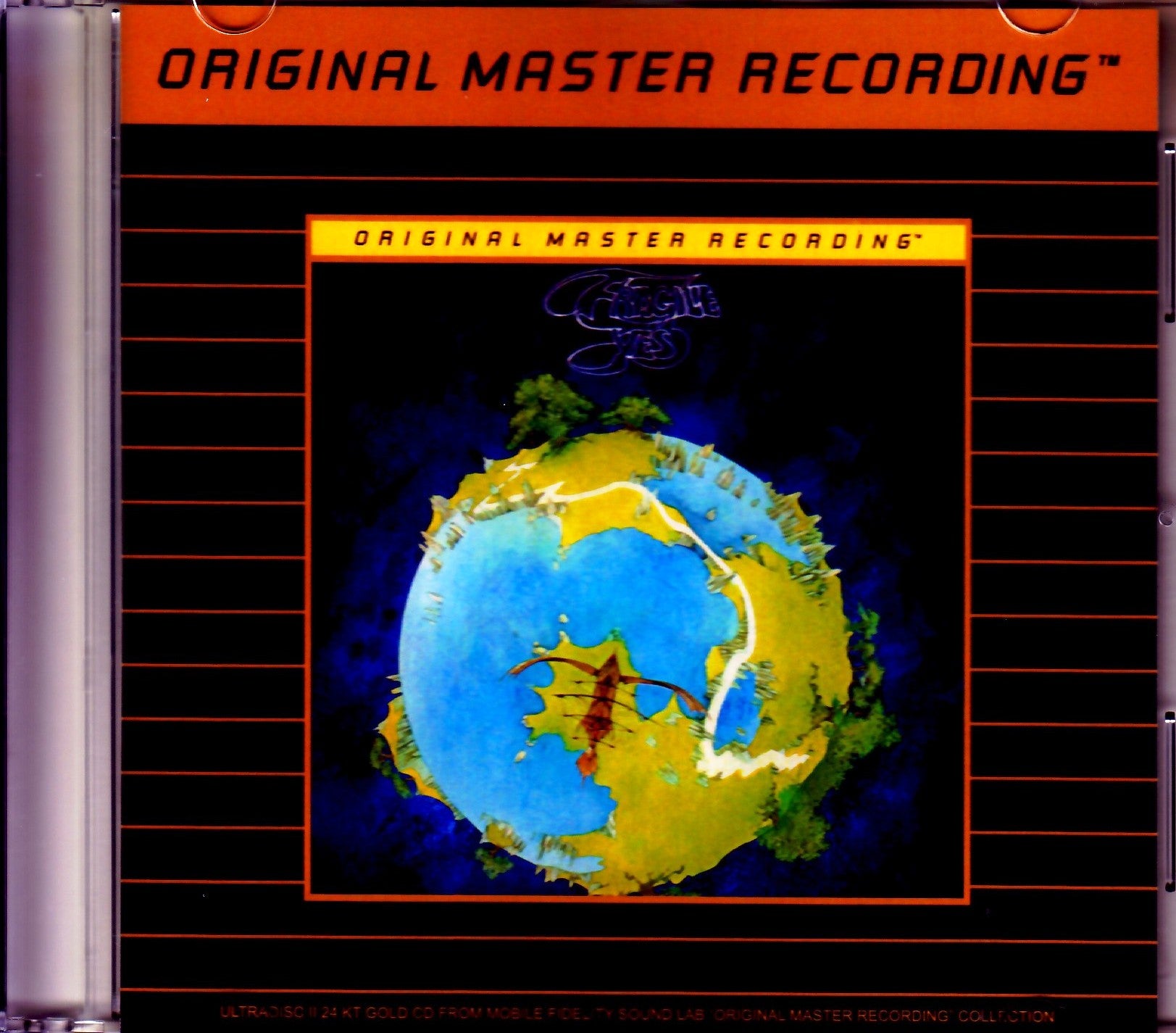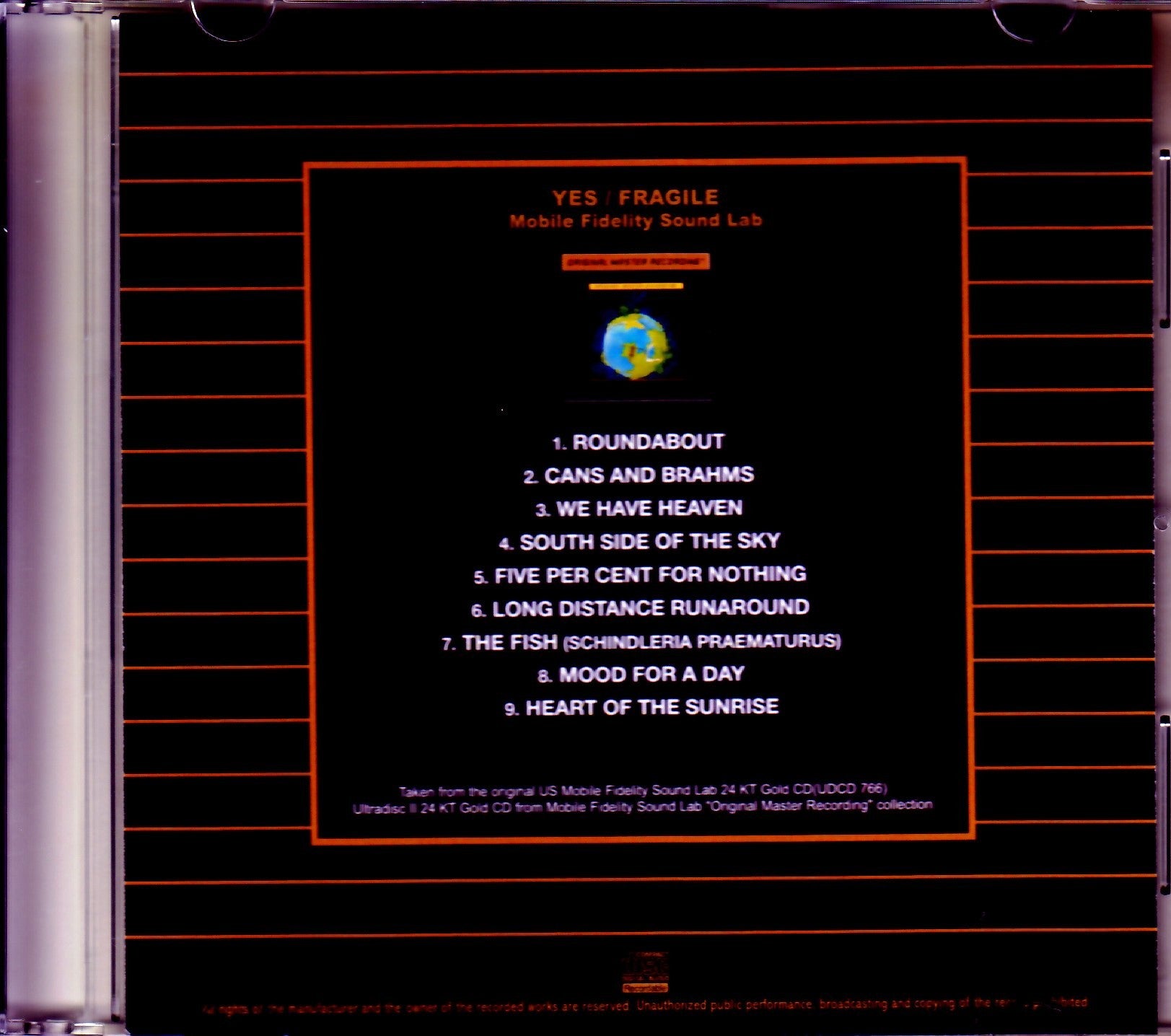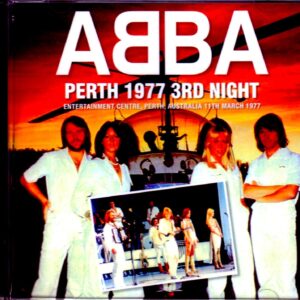Description
A gold CD reprint series of “Mobile Fidelity” which has attracted a lot of attention. The latest bullet is a gift release decision. Mobile Fidelity Sound Lab (MFSL), a manufacturer specializing in analog masters, is a trusted brand that is highly supported by audio enthusiasts around the world. With all of his passion, the sound craftsman has digitized many great albums from master tapes. Among such series, this work includes the CD “UDCD 766” released in 2006. Yes, it’s the masterpiece “Koremono” that heralded the arrival of YES’s golden age. [Mobile Fidelity prioritizes master tape sound] Many high-quality CDs appeared in the 1990s, when the conversion of analog works to CD was at its peak, but MFSL was in a class of its own. Other high-quality CDs are based on the idea of “suppressing digital deterioration” by using new technology to reduce the discomfort of compression, and by reducing reading errors in the material. On the other hand, MFSL’s policy is to “faithfully reproduce the sound engraved on the master tape and not add anything unnecessary.” We place the utmost importance on the “analog recorded sound itself,” including developing our own “half-speed mastering” technology that also focuses on the stage of extracting sound from magnetic tape. Since 1987, MFSL has borrowed original master tapes from record companies and meticulously digitized many masterpieces one by one. We have released the “Ultradisc” series, which transfers the sound of master tapes to CDs. Currently, it has expanded into the SACD and LP fields, but the point is that this work was released on CD in the first half of the 1990s. Magnetic tape masters are susceptible to deterioration over time, and the more time passes, the more the original sound is lost. There are cases where the tape becomes distorted or stuck, but even if it is stored precisely, it cannot prevent the tape from losing its magnetism. Nowadays, LPs recorded with physical grooves sound better than the master tapes themselves…and so on. In that respect as well, the “Ultradisc” series was a great achievement. It began in the 1980s when CDs were popular, and the sound of master tapes was digitized even before the advent of new CD technology that claimed high sound quality. [“Fragile” is vivid yet natural like a remaster] This work’s “Fragile” conveys the master sound “35 years after recording”. Since it was produced later than other bands’ MFSL releases, it doesn’t have an advantage over other companies’ remasters in terms of freshness, but the vivid yet natural finish is wonderful. The 2015 remix version is a completely different world, so it’s out of the question, but when it comes to YES remasters, the Rhino versions released in 2003 and 2008 are popular. To begin with the conclusion, this work is much clearer and more vivid than the 2003 version, and is close to the 2008 version. The drum sound is especially noticeable, and the 2003 version is a little plain. That in itself is not bad, but the problem is that the atmosphere is muffled. Although the strength of the hitting sound is almost the same, the edges are not clear, and because of this, it is difficult to grasp the three-dimensionality of the ensemble. In contrast, this film has a clear atmosphere, with Bill Bruford’s virtuosity and intricately intertwined ensemble clearly felt. Of course, if it sounds like that because of the sound pressure gain, it will be ruined, but this work is different. There is no unnatural feeling where only the peak pierces through, and the reverberation of the cymbals is beautiful until the moment it disappears without distortion. In fact, these good points have been carried over to the 2008 Rhino edition, but perhaps they were referring to the MF edition of this work released in 2006…It is so wonderfully natural that it makes you delusional.・It’s the sound. However, it is not the same as the 2008 Rhino edition. This work stands out for its spatial expanse and the beauty of its sound. The easiest one to understand is “Cans And Brahms”. Rick Wakeman’s organ and synths are beautiful solo songs, but this work is truly majestic, reminiscent of a church. The reverberation of each note fades away while retaining a subtle vibe, and the moment when phrases overlap is simply beautiful. However, although the notes on the Rhino version have a strangely sharp start, the acoustics do not develop and each note quickly cuts off (this tendency is the same for both the 2003 and 2008 Rhino releases). Of course, it’s not as radically different as the 2015 remix album, but it’s getting closer to that tight feeling. Of course, the sound that makes you feel like “I guess Rick was originally aiming for it” is the one in this work, and even though it has the same echo feeling, there is a sense of unity with the song idea that is different from what was added arbitrarily by later engineers. You can even feel the intentions of the musicians in the studio…it is such a master sound. Taken from the original US Mobile Fidelity Sound Lab CD(UDCD 766) from Mobile Fidelity Sound Lab “Original Master Recording” Collection 1. Roundabout 2. Cans And Brahms (Extracts From Brahms’ 4th Symphony In E Minor Third Movement) 3. We Have Heaven 4. South Side Of The Sky 5. Five Per Cent For Nothing 6. Long Distance Runaround 7. The Fish (Schindleria Praematurus) 8. Mood For A Day 9. Heart Of The Sunrise







Reviews
There are no reviews yet.